Running Press: Juneteenth 2023: Amplifying Black Voices

Juneteenth (which also goes by Freedom Day, Jubilee Day, and other names) commemorates the day that all enslaved Africans finally learned of their freedom. To honor this incredible moment, we are continuing our mission to amplify Black voices by inviting our authors to share what Juneteenth means to them. Read on for powerful reflections from Destiny Taylor, Dossé-Via Trenou, Kiana Fitzgerald, Nyasha Williams, and Jordannah Elizabeth.
Destiny Taylor on Walking Beside The Godmother of Juneteenth, Miss Opal Lee

“Last year, I had the opportunity to spend a weekend in Texas with Miss Opal Lee, aka The Godmother of Juneteenth. She is the activist who led the conversation and movement of establishing Juneteenth as a holiday. Miss Lee invited me into her home, lent me a dress for an evening occasion, and shared why she is passionate about Juneteenth. I attended her Juneteenth festival and was privileged to walk beside her for 2.5 miles. The mileage represented the 2.5 years it took for the news of freedom to reach enslaved people in Texas in the 1860s, and at 95, she walked every single step.
I am still figuring out what Juneteenth means to me, but seeing Miss Opal Lee’s passion has helped affirm its manifestation of my ancestors’ dreams and the progress Black Americans have made in this country that was once foreign to us.”
Detailed Title List
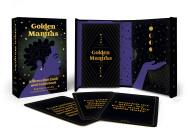
Golden Mantras
Newsletter Signup
By clicking ‘Sign Up,’ I acknowledge that I have read and agree to Hachette Book Group’s Privacy Policy and Terms of Use
Dossé-Via Trenou on True Freedom From Invisible Shackles

“As an African and American woman living in West Africa, Juneteenth holds quite the symbolic meaning for me. Not only is it the commemoration of June 19, 1865—the date enslaved people in Galveston, Texas heard the news that they were emancipated—but it’s also a reminder that as Black people across the diaspora, and on the continent, our freedom is something we’ve always claimed. It’s not something that we must wait to be handed to us.
I’ve been inspired by the stories of enslaved Africans who may have physically not been ‘free’, but spiritually they always were. Millions of enslaved Africans revolted against their enslavers and completely rebelled against systemic oppression. When enslaved Africans were told they were not allowed to read or write, millions did so anyway. When enslaved Africans were told they were not allowed to practice their indigenous African religions, millions did so anyway. When enslaved Africans were told they were less than human, millions knew that they possessed supernatural abilities, starting with their ability to always be tuned into their Ori — their divine power source.
It’s due to the courage and boldness of my African ancestors that I am here today. My maternal ancestors were once enslaved in Brazil, and after emancipation some of them returned to their ancestral home of Bénin, a country along the coast of West Africa, as part of their homegoing pilgrimage. It’s due to their bravery that my family’s lineage now continues in the Motherland. It’s also a key reason why I created my travel agency for the African diaspora, Magic & Melanin. Juneteenth serves as a reminder that no matter how long one may attempt to keep us in shackles systemically, our spirits can never be contained; instead they will always set us free. Thank you Ori. Thank you ancestors.”
Detailed Title List
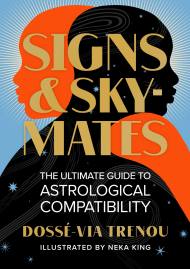
Signs & Skymates
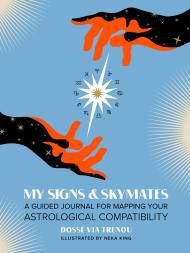
My Signs & Skymates
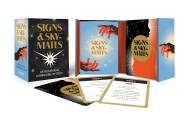
Signs & Skymates Astrological Compatibility Deck
Kiana Fitzgerald on the Higher Power Guiding Her to Creative Liberation
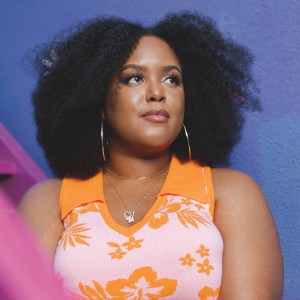
“Juneteenth 2016 was the day that I cemented my unwavering dedication to hip-hop, by far the greatest love of my life. It was a picture-perfect Sunday afternoon, and I had my very first live DJ gig on a rooftop in Brooklyn, New York. As a native Southerner—specifically, a small-town Texan from just a few hours west of Galveston, the origin of Juneteenth—I felt like it was my duty to bring the spirit of the South into this space. From underground acts like Robb Bank$, Dretti Franks, and Lofty305, to more established artists like David Banner and 21 Savage, I spun records that spoke to my heart and represented the emotional plight of people who have historically needed to be heard the most. Even though I was largely unfamiliar with the borrowed DJ equipment in front of me, the set went off without a hitch; it was almost as if my hands were being guided by a higher power, like I was fated to play these songs to the heavens for my ancestors, the artists, and for myself. Spreading love is the Brooklyn way, word to Biggie, and Juneteenth is the perfect opportunity for us to collectively adopt that mindset. May this holiday continue to inspire us to push our spirits toward sustained joy, creative liberation, and unabashed self expression.”
Detailed Title List
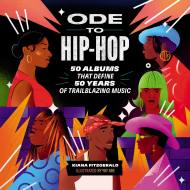
Ode to Hip-Hop
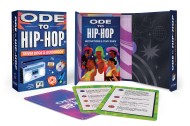
Ode to Hip-Hop Trivia Deck & Guidebook
Nyasha Williams on Passing Healing and Abundance Through Generations
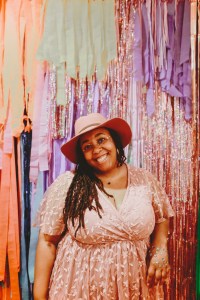
“In honor of Jubilee Day, I decided to work on a poem. I have been hearing the call to re-write Langston Hughes’s ‘I, Too.’ If pain and trauma can be passed through generations, so can healing and abundance.”
I, Too
Langston Hughes – 1902-1967
I, too, sing America.
I am the darker brother.
They send me to eat in the kitchen
When company comes,
But I laugh,
And eat well,
And grow strong.
Tomorrow,
I’ll be at the table
When company comes.
Nobody’ll dare
Say to me,
“Eat in the kitchen,”
Then.
Besides,
They’ll see how beautiful I am
And be ashamed—
I, too, am America.
We, Too
Nyasha Williams
We, too, write America.
Our richly hued community.
They welcome Our selected stories
in palatable variations
White washed in time for company,
But We heal,
And communally create,
And re-Indigenize our dreams.
Tomorrow,
We will have reclaimed and rebuilt our tables.
So when company comes
And they call out to Us,
Pulling out a chair or two,
“Nah, I’m good,”
Our liberated Ancestral reply,
Will ring.
Besides,
They’ll see the wholeness in Our
narratives
And be humbled—
As We, too write America.
“May we all walk in our individual callings, uplifted in community towards belonging and liberation for all.”
Detailed Title List
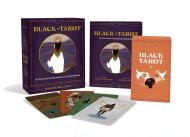
Black Tarot
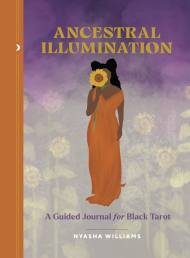
Ancestral Illumination
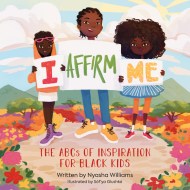
I Affirm Me
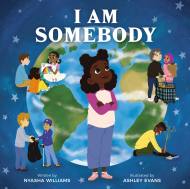
I Am Somebody
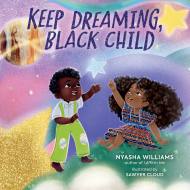
Keep Dreaming, Black Child
Jordannah Elizabeth Graham on the Full Magnitude of Emancipation
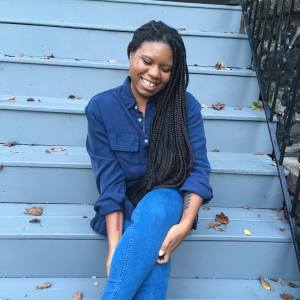
“On June 19, 1865, what then felt like nothing less than a miraculous occurrence, African American slavery was legally abolished. Millions of slaves were set free, and on this day, as I reflect on the magnitude of the political and social maneuver, I am thankful for my freedom. This day is now recognized as Juneteenth.
Being African American brings a lot of thoughts of trauma: police brutality, poverty and suffering; but as a Black woman in the 2020s, I can honestly express that my life is full of freedoms: to travel, pursue education, and marry who I please. My life, in all facets, has freedoms that many women across the globe do not have when it comes to marriage and educational rights. This, among other privileges I enjoy, is a powerful offering that has historically trickled down from 1865. I am blessed and honored to be a Black woman, an African American, a wife, mother, sister, daughter, widely published author, and friend. I am thankful for Juneteenth. Let us all celebrate the commemoration of this great day together!”
Detailed Title List
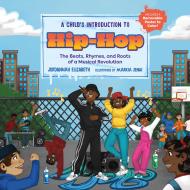
A Child's Introduction to Hip-Hop
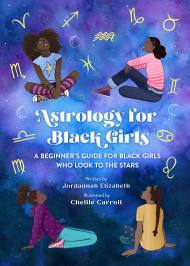
Astrology for Black Girls
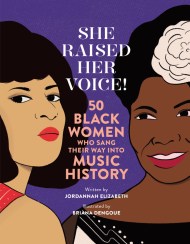
She Raised Her Voice!
More Reads to Celebrate Juneteenth
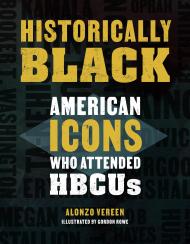
Historically Black
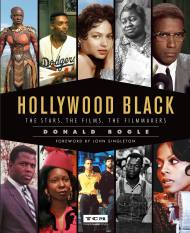
Hollywood Black
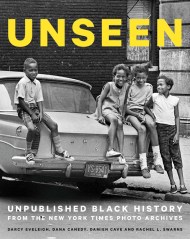
Unseen
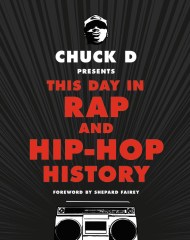
Chuck D Presents This Day in Rap and Hip-Hop History
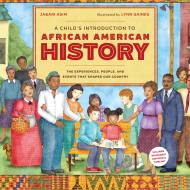
A Child's Introduction to African American History
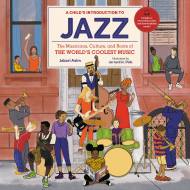
A Child's Introduction to Jazz
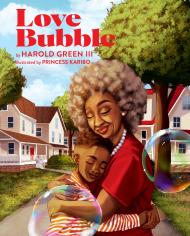
Love Bubble
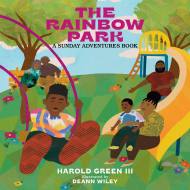
The Rainbow Park
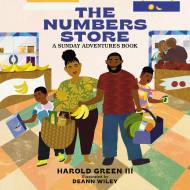
The Numbers Store